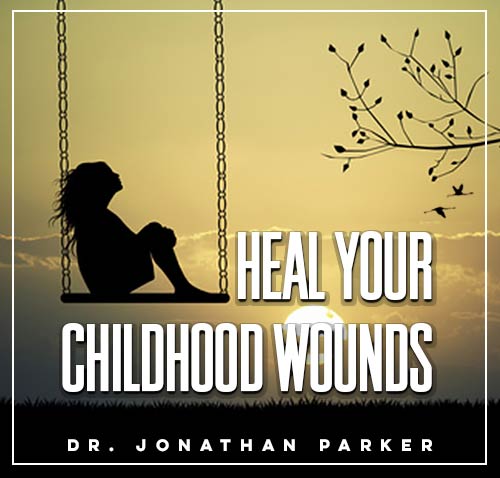Childhood Trauma Support Guide

Looking for more amazing products? Check out our online store and explore our collection here! Happy shopping!
Before diving in, please note: This post is for informational purposes only. If you’d like to know more about how we approach topics, feel free to check out our friendly Disclaimer Page.
Hey there, amazing readers! 
We’re committed to delivering quality posts, and your support (even just sticking around despite the ads) means everything to us. So, bear with us, and thanks for helping us keep the good vibes rolling. Now, on to the fun stuff!
TRANSLATE BUTTON AT THE END OF THE ARTICLE
Understanding Childhood Trauma
Childhood trauma refers to any experience that is emotionally or physically harmful to a child’s well-being.
These experiences can range from physical abuse, emotional neglect, witnessing violence, or even experiencing a natural disaster.
Traumatic events can have a profound impact on a child’s mental health and overall development.
It is crucial to understand that childhood trauma can manifest in various ways, and each child may respond differently based on their unique circumstances.
Signs and Symptoms to Look Out For
Recognizing the signs and symptoms of childhood trauma is essential for early intervention and support.
Some common indicators include anxiety, depression, aggression, withdrawal, bedwetting, nightmares, and difficulty concentrating.
Children may also exhibit regressive behaviors such as thumb sucking or wanting a security blanket.
It is crucial to pay attention to any sudden changes in behavior or mood that may signal underlying trauma.
Effects of Childhood Trauma on Development
Childhood trauma can have long-lasting effects on a child’s development.
It can impact cognitive abilities, social skills, emotional regulation, and even physical health.
Trauma can interfere with a child’s ability to form healthy attachments, trust others, and navigate relationships.
These effects can persist into adulthood if not addressed, leading to a higher risk of mental health disorders, substance abuse, and difficulty in maintaining stable employment or relationships.
Importance of Seeking Professional Help
Seeking professional help for a child who has experienced trauma is crucial for their healing and recovery.
A trained therapist or counselor can provide the necessary support and interventions to help the child process their emotions and develop healthy coping mechanisms.
Therapy can also help the child rebuild their sense of safety and self-esteem, empowering them to move forward from their traumatic experiences.
Building a Support System for the Child
Building a strong support system around the child is vital in helping them navigate the effects of trauma.
This support system can include family members, teachers, friends, and mental health professionals.
Creating a safe and nurturing environment where the child feels heard, understood, and valued is essential for their healing process.
Encouraging open communication and providing unconditional love and support can make a significant difference in the child’s recovery.
Therapy Options for Childhood Trauma
There are various therapy options available to help children who have experienced trauma.
Cognitive-behavioral therapy (CBT) can help the child challenge negative thought patterns and behaviors related to their trauma.
Play therapy allows children to express their emotions through play and creative activities.
Eye movement desensitization and reprocessing (EMDR) can help the child process traumatic memories and reduce their emotional distress.
It is essential to work with a therapist to determine the most effective treatment approach for the child.
Techniques for Coping with Trauma
Teaching children healthy coping mechanisms is essential in helping them manage the effects of trauma.
Breathing exercises, mindfulness practices, and relaxation techniques can help the child regulate their emotions and reduce anxiety.
Encouraging physical activity, creative outlets, and spending time in nature can also be beneficial in promoting emotional well-being.
It is crucial to empower the child to develop their coping skills and provide them with tools to navigate challenging situations.
Providing a Safe and Nurturing Environment
Creating a safe and nurturing environment for a child who has experienced trauma is key to their healing process.
Discover "SUPERFOODS: The Key to Health and Balance
"
This environment should be free from triggers and stressors that may retraumatize the child.
Establishing routines, setting boundaries, and offering consistent support can help the child feel secure and stable.
Providing a safe space where the child can express their feelings without judgment is essential for their emotional well-being.
Educating Yourself on Trauma
Educating yourself on childhood trauma and its effects is crucial in supporting a child through their healing journey.
Understanding the impact of trauma on brain development, behavior, and emotions can help you provide the necessary support and interventions.
It is essential to stay informed about trauma-informed practices and approaches that prioritize the child’s well-being and recovery.
Seeking out resources, workshops, and training programs can enhance your knowledge and skills in supporting children who have experienced trauma.
Helping Children Express Their Feelings
Helping children express their feelings in a healthy and safe way is essential for their emotional well-being.
Encouraging open communication, active listening, and validating their emotions can help the child feel understood and supported.
Providing outlets for creative expression, such as art therapy, journaling, or music, can allow the child to process their feelings and experiences.
It is crucial to create a non-judgmental space where the child feels comfortable sharing their thoughts and emotions without fear of criticism.
Resources for Childhood Trauma Support
There are various resources available to support children who have experienced trauma and their caregivers.
Local mental health clinics, community organizations, and school counselors can provide referrals to therapists and support groups.
Online resources, such as articles, books, and webinars, can offer valuable information on trauma recovery and coping strategies.
It is essential to explore different resources and find the ones that best meet the child’s needs and circumstances.
Encouraging Healing and Recovery
Encouraging healing and recovery in a child who has experienced trauma requires patience, empathy, and understanding.
It is essential to celebrate small victories, acknowledge progress, and validate the child’s efforts in their healing journey.
Providing ongoing support, reassurance, and encouragement can help the child build resilience and move forward from their traumatic experiences.
It is crucial to empower the child to take control of their healing process and remind them that they are not alone in their recovery.
Conclusion
Childhood trauma can have a profound impact on a child’s well-being and development.
Understanding the signs and symptoms of trauma, seeking professional help, and building a strong support system are crucial steps in supporting a child through their healing journey.
By providing a safe and nurturing environment, educating yourself on trauma, and helping children express their feelings, you can empower them to cope with their experiences and move towards healing and recovery.
Remember that every child is unique, and their healing process may take time, but with patience, empathy, and support, they can overcome the effects of trauma and thrive.

The Enlightenment Journey is a remarkable collection of writings authored by a distinguished group of experts in the fields of spirituality, new age, and esoteric knowledge.
Discover "Sports Nutrition: The Importance of Nutrition and Exercise for Overall Health
"
This anthology features a diverse assembly of well-experienced authors who bring their profound insights and credible perspectives to the forefront.
Each contributor possesses a wealth of knowledge and wisdom, making them authorities in their respective domains.
Together, they offer readers a transformative journey into the realms of spiritual growth, self-discovery, and esoteric enlightenment.
The Enlightenment Journey is a testament to the collective expertise of these luminaries, providing readers with a rich tapestry of ideas and information to illuminate their spiritual path.
Our Diverse Expertise
While our primary focus is on spirituality and esotericism, we are equally passionate about exploring a wide range of other topics and niches 

To ensure we provide the most accurate and valuable insights, we collaborate with trusted experts in their respective domains 
Our blog originally focused on spirituality and metaphysics, but we’ve since expanded to cover a wide range of niches. Don’t worry—we continue to publish a lot of articles on spirituality! Frequently visit our blog to explore our diverse content and stay tuned for more insightful reads.
Hey there, amazing reader! 
Check out our store here and take a peek at some of our featured products below! Thanks for being awesome!
















